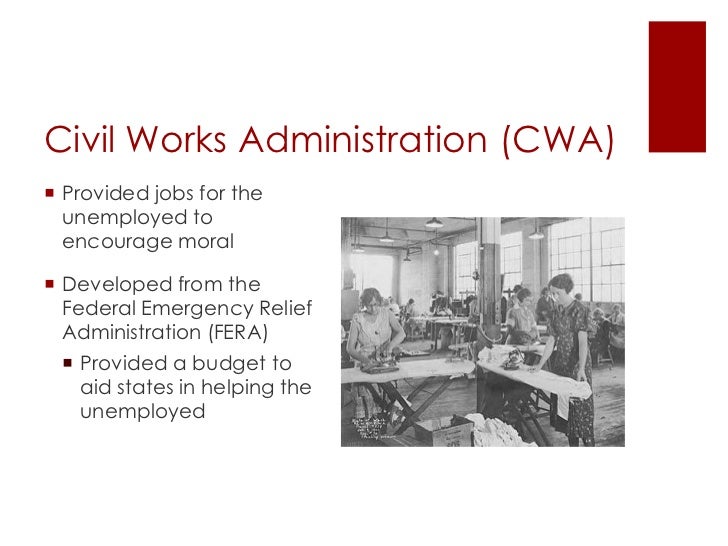New Financial Laws One of FDR's major accomplishments during his first 100 days in office was a program that revolutionized the financial industry. For the first time, the business of buying and selling shares in companies was regulated, and the bank accounts of ordinary people were insured. The SEC and FDIC were established by the New Deal. Jul 31, 2020 The New Deal is an economic policy Franklin D. Roosevelt launched to end the Great Depression. Americans, battered by 25% unemployment, Dust Bowl droughts, and four waves of bank failures, welcomed the government's rescue.
Definition and Summary of the FDR New Deal Programs
Summary and Definition: The FDR New Deal Programs were a series of measures that aimed at achieving Relief, Recovery and Reform to combat the effects of the Great Depression. When Franklin D. Roosevelt assumed the presidency on March 4, 1933 more 12 million Americans were unemployed (25% of the population) and over 1 million were destitute and had been made homeless. The diverse list of FDR New Deal Programs provides an insight into the various problems that had to be addressed to counter the devastating effects of the Great Depression together with the series of droughts which had led to the Dust Bowl and the plight of American farmers. Various laws were passed which enabled the establishment of relief programs and 'alphabet soup agencies' to be established such as the AAA, CCC, PWA, TVA, SEC, FCS and the FERA.
New Deal Programs
Franklin D Roosevelt was the 32nd American President who served in office from March 4, 1933 to April 12, 1945. One of the important events during his presidency was the establishment of the New Deal Programs.
New Financial Laws
One of FDR's major accomplishments during his first 100 days in office was a program that revolutionized the financial industry. For the first time, the business of buying and selling shares in companies was regulated, and the bank accounts of ordinary people were insured. The SEC and FDIC were established by the New Deal. These two agencies – the Securities and Exchange Commission and the Federal Deposit Insurance Corporation – had a significant, indirect effect on the nation's farmers.
Birdie Farr's father-in-law, Jack, lost money when the bank in Grand Island collapsed. This was before the FDIC was enacted.
In his early career, FDR had worked for a Wall Street law firm. Perhaps because of what he saw there, his inaugural address in 1933 was filled with disdain for Wall Street.
'[The] rulers of the exchange of mankind's goods have failed through their own stubbornness and their own incompetence, have admitted their failure, and have abdicated. Practices of the unscrupulous money changers stand indicted in the court of public opinion, rejected by the heart and minds of men… there must be strict supervision of all banking and credits: and investments, so that there will be an end to speculation with other people's money.'
Congress hurriedly created the first Securities and Exchange Commission, and FDR named Wall Street regular Joseph P. Kennedy – the father of later President John F. Kennedy – to be the Commission's first chairman. Banks could no longer buy stocks with depositors' money. Companies that wanted to sell shares to the public to raise money had to disclose a host of financial information to potential investors. For the first time, investors could find out if a company was worth the stock price it was asking. The SEC also regulated the major stock exchanges, the brokers and dealers, mutual funds and investment advisors.
These new regulations helped farmers indirectly because, gradually, investors found new confidence, companies were able to expand again, and consumers were able to buy more food and other agricultural products.
The Federal Deposit Insurance Corporation (FDIC) also helped rural residents because for the first time they knew that their money in the bank was insured. If the bank went out of business, the FDIC would reimburse depositors up to certain limits.


Fdic New Deal Program
The FDIC operates by imposing a small tax on the amount of money that a bank has in deposits. If a bank goes under, the FDIC will first try to sell the assets that were used to secure the loans and will then dip into the insurance fund to pay back depositors. The FDIC also regulates banking practices.
Ads for banks in the Great Plains prominently display the 'Insured by the FDIC' logo – more so than in other regions of the country. The FDIC has become an important part of the confidence that people feel in the banking system.
Fdic New Deal
Written by Bill Ganzel of the Ganzel Group. First written and published in 2003.